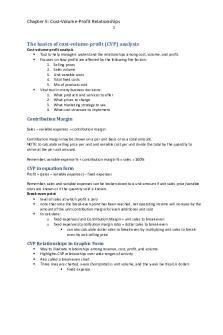Psych 1240 notes 18 - Family Relationships in Childhood PDF

| Title | Psych 1240 notes 18 - Family Relationships in Childhood |
|---|---|
| Author | Ally Shouse |
| Course | Introduction to Human Development (Group B) |
| Institution | Saint Mary's University Canada |
| Pages | 5 |
| File Size | 43.9 KB |
| File Type | |
| Total Downloads | 50 |
| Total Views | 153 |
Summary
Family Relationships in Childhood...
Description
Psych 1240! Family Relationships in Childhood!
Lecture objectives •After today’s class, you should be able to... –Define socialization and autonomy. Identify three ways in which parents contribute to the socialization of their children (and be able to state which of the three a specific parenting behaviour falls under) •Next class: We’ll build on this definition of autonomy, discussing 3 forms that develop throughout adolescence. –Name and describe the two parenting dimensions and four parenting styles outlined by Baumrind. Understand where each parenting style falls on the two dimensions. –Identify child characteristics associated with each parenting style. –Why is authoritative parenting generally associated with positive developmental outcomes?
Parents’ socializing influence SOCIALIZATION is the process through which children acquire the values, standards, skills, knowledge, and behaviours that are seen as appropriate for their role in their particular culture. –Parents are direct instructors: Directly teach skills, rules, strategies; explicitly advise child on various issues
–Parents are indirect socializers: Indirect socialization through their own behaviours around their children. –Parents are social managers: Parents manage children’s social lives, including their exposure to people, experiences, and information
Changes in the parent-child relationship From mid-childhood through adolescence, gradual transfer of control from parent to child (increasing co-regulation) This transfer facilitates the child’s developing sense of AUTONOMY: The ability and willingness to take responsibility for one’s feelings, actions, decisions, and beliefs
Baumrind’s parenting dimensions Many of the differences in parenting style can be captured by two independent DIMENSIONS: ACCEPTANCE/RESPONSIVENESS: Dimension includes giving praise, warmth, and affection; paying attention to the child’s wants, needs, and concerns. DEMANDINGNESS/CONTROL: Dimension includes setting rules, stating expectations clearly, and monitoring child to ensure both are being met.
Neglectful (uninvolved): Low acceptance/responsiveness, low demandingness/control Neglectful parenting outcomes
CHILD OUTCOMES: –Moodiness, impulsiveness, aggression, non-compliance, irresponsibility, immaturity –Low self-esteem –Insecure attachment, alienation from family –Lower social/academic skills –Association with troubled peers; delinquent behaviour
Indulgent (permissive): high acceptance/responsiveness, low demandingness/control
Idulgent parenting outcomes CHILD OUTCOMES: –Aggressive, domineering, resistant, non-compliant –Quick to anger, though often quick to recover cheerful mood –Lack of self-control; impulsive; less mature and responsible –Aimless; low achievement orientation –More likely to conform to peers
Authoritarian: low acceptance/responsiveness, high demandingness/ controlBaumrind’s
Parenting styles CHILD OUTCOMES: –Moodiness, unhappiness, aimlessness –Fearful; apprehensive; less self-assured –Alternation between aggressive behaviour and sulky withdrawal –Vulnerable to stress –More dependent and passive
Authoritative: high acceptance/responsiveness, high demandigness/control
CHILD OUTCOMES: –Cheerful –Self-controlled, self-reliant, responsible –Achievement-oriented –Intellectually and socially curious –Socially skilled –Copes well with stress
Why does authoritative parenting work?
Children shape their parents’ behaviours! Cause-and-effect likely doesn’t go in one direction
AUTHORITATIVE PARENTING is consistently associated with autonomy and other healthy developmental outcomes: –Verbal give-and-take: Promotes emerging cognitive skills –Involves a warm parent–child relationship: •Children more likely to identify with/admire parents; more open to their influence –It strikes balance between restrictiveness and autonomy...
Similar Free PDFs

Psych 208 Early Childhood Notes
- 9 Pages

Psych 101 10-15-18 Notes
- 3 Pages

Psych 2322 Chpt 18
- 5 Pages

Transition in early childhood
- 4 Pages

Is childhood ‘in crisis’?
- 6 Pages

Women in Abusive relationships
- 3 Pages

Childhood Obesity Notes
- 2 Pages

CVP Relationships Notes
- 4 Pages

18 - Lecture notes 18
- 5 Pages
Popular Institutions
- Tinajero National High School - Annex
- Politeknik Caltex Riau
- Yokohama City University
- SGT University
- University of Al-Qadisiyah
- Divine Word College of Vigan
- Techniek College Rotterdam
- Universidade de Santiago
- Universiti Teknologi MARA Cawangan Johor Kampus Pasir Gudang
- Poltekkes Kemenkes Yogyakarta
- Baguio City National High School
- Colegio san marcos
- preparatoria uno
- Centro de Bachillerato Tecnológico Industrial y de Servicios No. 107
- Dalian Maritime University
- Quang Trung Secondary School
- Colegio Tecnológico en Informática
- Corporación Regional de Educación Superior
- Grupo CEDVA
- Dar Al Uloom University
- Centro de Estudios Preuniversitarios de la Universidad Nacional de Ingeniería
- 上智大学
- Aakash International School, Nuna Majara
- San Felipe Neri Catholic School
- Kang Chiao International School - New Taipei City
- Misamis Occidental National High School
- Institución Educativa Escuela Normal Juan Ladrilleros
- Kolehiyo ng Pantukan
- Batanes State College
- Instituto Continental
- Sekolah Menengah Kejuruan Kesehatan Kaltara (Tarakan)
- Colegio de La Inmaculada Concepcion - Cebu






